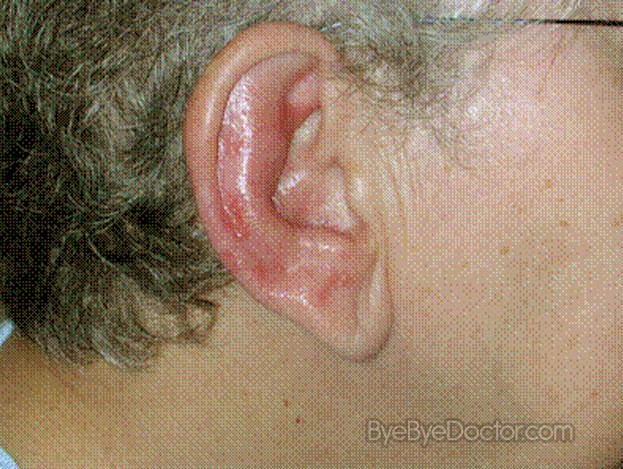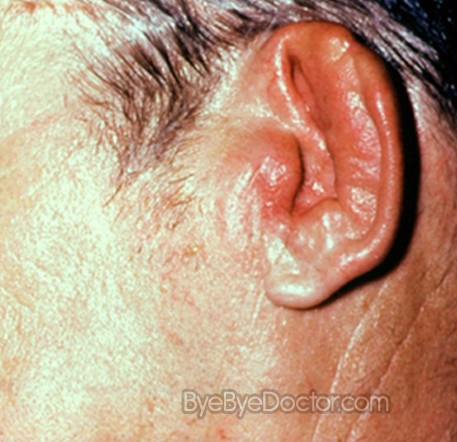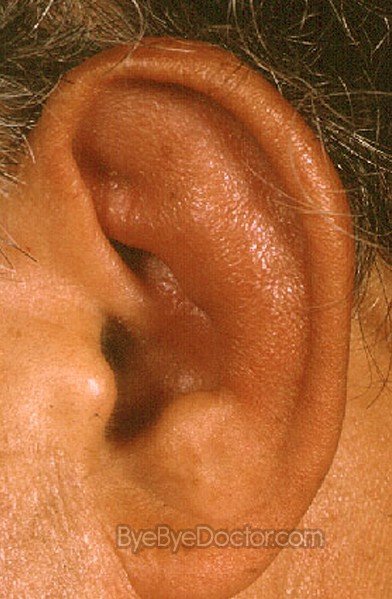What is Relapsing Polychondritis?
This is an extremely rare, multisystem disease that may be life-threatening, very difficult to diagnose as well as debilitating. It is categorized by repeated, possibly severe, as well as extremely frightening incidents of inflammation of cartilaginous tissues.
Cartilages that may develop inflammation at various times include nose, ears, joints, windpipe and spine. The heart, blood vessels and eye that all have a biochemical composition that is similar to cartilage, may also be affected.
Relapsing Polychondritis Symptoms
Ears
- Redness
- Pain
- Cauliflower ear
- Loss of hearing
Throat – Trachial and Bronchial
- Hoarseness
- Coughing
- Redness in upper chest area
- Pain
- Shortness breath
- Trouble breathing
- Choking
Note that early involvement of the throat is usually severe and can be life threatening. An emergency tracheostomy may be needed due to obstruction of the airway.
Intubation or bronchoscopy can cause irritation which leads to airflow reduction. This irritation may take several hours to appear after the procedure. It does not appear to be an occurrence that is frequent but caution is needed after returning home from having such a procedure.
- Joints – General pain with or without swelling
- Sinus/Nose – Deterioration (saddle nose), blockage of sinuses, severe and frequent sinus headaches. Fall is normally slow to the point of not being noticed until compared to some old photos.
- Vision – Vision is blurred, headaches, episcleritis, or scleritis
Inflammation of the joints is known as arthritis and causes pain, stiffness of all the joints in the knees, hands, wrist, ankles as well as feet.
With the eye inflammation, it can either be mild to severe and may damage the vision. Cataracts may be triggered by the inflammation or from any cortisone used in treating relapsing polychondritis.
Other areas of tissues that may develop inflammation can include the aorta (leads to aortic valve weakness or aneurysm), tissues around or in the heart (leads to myocarditis and pericarditis), and the skin and the nerves from the brain, (leads to cranial nerve palsies).
Relapsing Polychondritis Causes
The reason or cause of relapsing polychondritis is not known. It is believed that this disease is actually an autoimmunity disorder where the body’s own immunity system that normally fights off foreign invaders into the body, is for some reason misguided. This causes the inflammation to be directed at various healthy tissues in the body.
The list of complications of this disease is almost endless, and some of these include:
- Loss of hearing in cases that are recurring
- Weakness of the aortic valve
- Aneurysm
- Death
Relapsing Polychondritis Treatment
A characteristic assortment of symptoms and indications will produce a diagnosis of relapsing polychondritis. Lab tests are often cooperative. Cartilage biopsies of affected area can endorse the diagnosis. Often additional diagnostic tests are done in order to eliminate other conditions that are associated for instance rheumatoid arthritis. Also, it is very important to appraise the airway, but only approximately 10% of individuals will perish from any complications of the airway.
Inflammations which are mild may be treated by aspirin or non-steroidal anti-inflammatory drugs also known as NSAIDs like ibuprofen. Corticosteroids – usually prednisone – are normally prescribed for conditions that are more advanced and they do help with the illness.
http://www.Symptoms-Causes-treatment.blogspot.com detect diseases at an early stage symptoms, and find out the causes and treatments best suited.
Oral corticosteroids are considered the mainstay for treatment of this illness. Preliminary doses of prednisone range from 0.5 to 1.0 mg/kg depending on the specific problems at presentation. They might have to be sustained over extensive time periods, in which case the use needs to be watched closely to avoid any difficulties.
Immune suppression with:
- Cyclophosphamide
- Cyclosporine
- Azathioprine
- Dapsone
is usually reserved for cases which are more aggressive.
A chest that is collapsed or collapsed airway may need surgical maintenance and an aorta or a heart valve can need replacing or repair.
When relapsing polychondritis is linked with a systemic vasculitis, the treatment needs to be tailored to the underlying arteritis. Chronic care of the individual with this disorder requires periodic reassessment of the pulmonary, cardiovascular as well as renal systems.
While medical therapy that is conventional can help to relieve symptoms of relapsing polychondritis these treatments do not report the root of the problem. Normally, by undergoing wide-ranging natural medication testing, the reason that the body is producing the antibodies against itself can be discovered. It is believed that the reasons include allergies or sensitivities to foods, chemicals, infections and various inhalants.
Prognosis
There is currently no known cure for this disease. It only can be fought as indicated by each case of inflammation as well as deterioration of cartilaginous tissue. As this illness progresses over a period of years, the rate of mortality increases. At 5 years duration, relapsing polychondritis has a 30% rate of mortality.
Diet
On the internet there are several websites with individuals who have had this disease and have responded to nutritional strategies and responded well. A diet referred to as the McDougall Program is recommended by many as the best as well as the most practical. There is a book available under this name. The diet is basically a low-fat vegan diet, which means the elimination of all dairy products and eggs as well as the elimination of meat, fish and chicken. Many of the autoimmune diseases have responded favorably to this type of diet.
In short – try a “no animal proteins” in any form diet.
Relapsing Polychondritis Pictures



